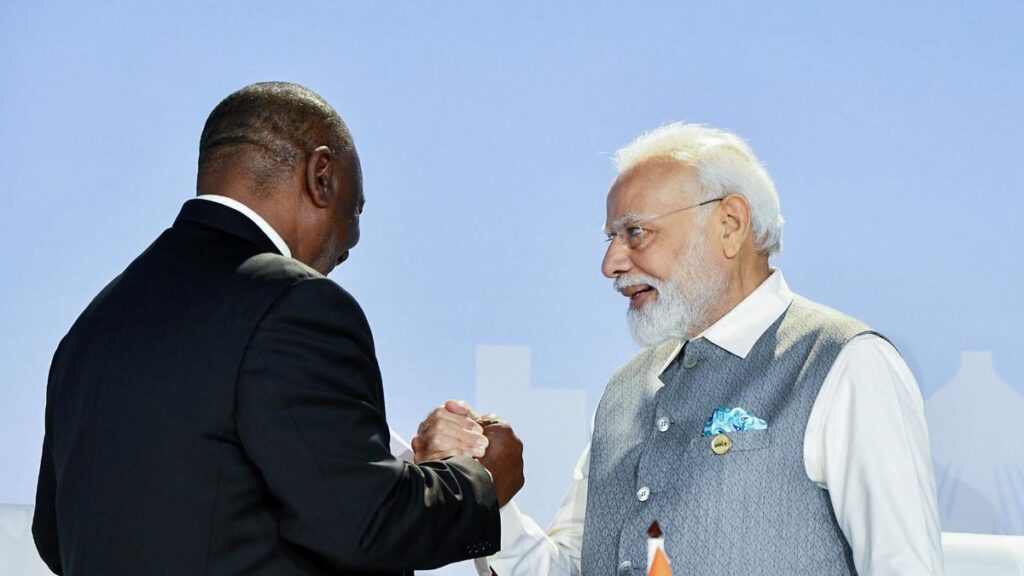
In the realm of Indian politics, where alliances can be as fickle as the wind, the recent statement made by Ajit Pawar carries significant weight. The Deputy Chief Minister of Maharashtra and nephew of Sharad Pawar, Ajit Pawar, declared, “There are no permanent enemies in politics, only strategic alliances.” These words come amidst a visible rift between him and his uncle Sharad Pawar, the chief of the Nationalist Congress Party (NCP). This bold pronouncement not only underscores the ever-fluctuating nature of political relationships but also provides insight into Ajit Pawar’s nuanced approach to handling intra-party and inter-party dynamics.
The Unfolding Drama: Family vs. Politics
Ajit Pawar’s Remark: A Calculated Diplomacy
Ajit Pawar’s statement seems to be a deliberate strategy to manage the narrative around his contentious relationship with Sharad Pawar. The seasoned politician, known for his shrewd tactics, understands that public perception can play a pivotal role in shaping the outcome of political battles. By emphasizing the transitory nature of enmity and alliances, Ajit Pawar attempts to portray himself as a pragmatist who prioritizes the larger goals of governance and development over personal disagreements.
The Sharad Pawar Factor: A Formidable Political Force
Sharad Pawar, a veteran in Indian politics, commands immense respect and wields considerable influence across party lines. His reputation as a skilled negotiator and consensus builder has earned him allies and admirers over the years. However, the power struggle within the NCP, with his nephew challenging his authority, has led to a schism that has captured the attention of political observers and the public alike.
The Dynamics of Political Relationships:
Shifting Alliances in Indian Politics
Indian politics is notorious for its unpredictable alliances and realignments. Parties that may have been bitter rivals in one election can become strategic partners in the next. This fluidity stems from the diverse socio-economic landscape of the country, where regional and national interests often intersect and clash. Ajit Pawar’s assertion aligns with this dynamic, acknowledging that political affiliations are often governed by circumstances rather than rigid ideologies.
The Role of Strategic Calculations
In the high-stakes game of politics, strategic calculations play a pivotal role. Ajit Pawar’s statement underscores the importance of evaluating short-term gains against long-term objectives. Political leaders must make difficult choices, sometimes forming alliances with individuals or groups they vehemently opposed in the past. This realpolitik approach aims to ensure the effective implementation of policies and the overall progress of the constituents.
Navigating Intra-party Dynamics:
Unity in Diversity: Managing Differences
Ajit Pawar’s maxim holds relevance not only in inter-party dynamics but also within political organizations themselves. In the case of NCP, internal dissent and power struggles have become increasingly apparent. Ajit Pawar’s pragmatic stance can be seen as an attempt to bridge these divides, emphasizing that while differences may arise, the pursuit of common goals should always take precedence.
Leadership and the Balancing Act
Political leaders like Sharad Pawar are often tasked with maintaining a delicate balance between the aspirations of the party’s various factions. This juggling act requires finesse, strategic thinking, and, at times, concessions. Ajit Pawar’s statement could be interpreted as a reflection of the challenging role leadership entails, where the greater good necessitates working alongside those with differing opinions.
Conclusion: Politics as a Game of Strategy
In the grand theater of Indian politics, where alliances are forged and broken with the changing tides, Ajit Pawar’s proclamation reverberates as a testament to the intricate dynamics that define the realm. His words encapsulate the essence of pragmatism that underlies successful political maneuvering – a skill that can shape the course of the nation’s destiny. As the landscape of Indian politics continues to evolve, one thing remains certain: in this arena of perpetual change, there are no permanent enemies, only strategic alliances, and the wise politician navigates this truth with acumen and foresight.



